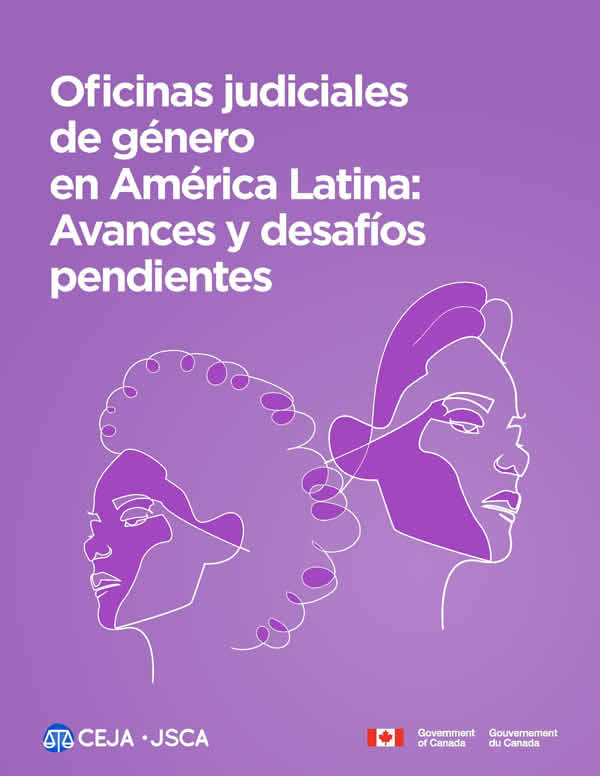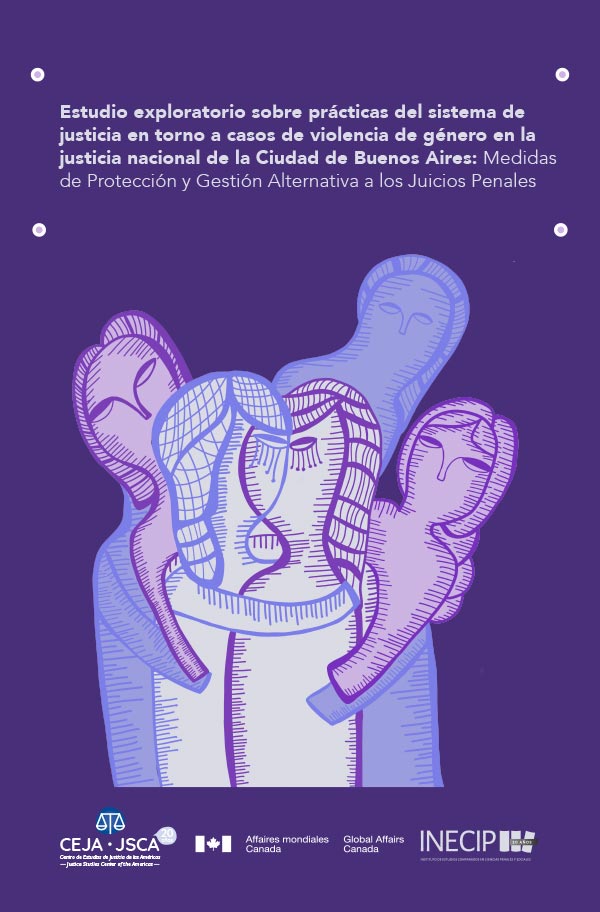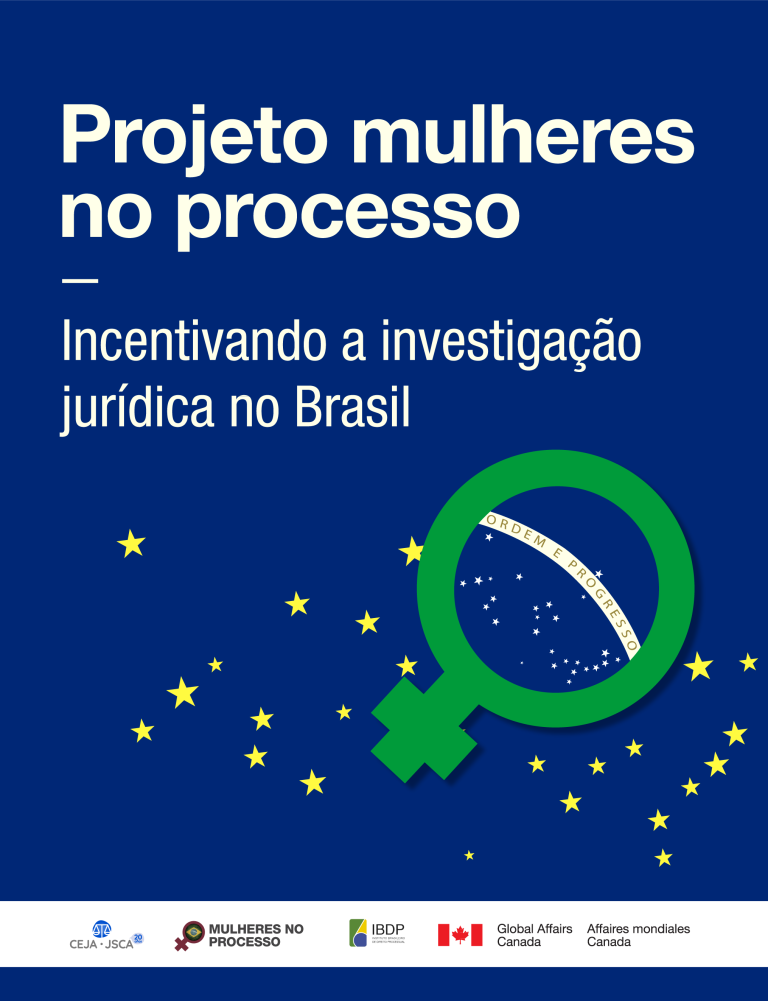
ACCESS TO JUSTICE FOR WOMEN
The project Improving Access to Justice in Latin America starts with recognizing the urgent need to incorporate a perspective focused on gender inequities in access to justice. To that end, JSCA developed courses, seminars and research projects to raise awareness of the importance of creating comprehensive justice systems that are more effective and respectful of international standards on women’s human rights. This work also focused on applying the gender perspective in the justice sector based on the recognition of structural inequities.
PUBLICATIONS

In order to highlight the progress made on incorporating the gender perspective into judiciaries in the region, JSCA has published an initial study on this topic in the context of its gender policy. The goal is to identify Latin American judiciaries’ gender units and the actions that they have undertaken to incorporate a gender perspective into the institution’s culture and work.
SEE PUBLICATION (In Spanish)

In collaboration with the Feminisms and Criminal Justice Working Group created by the Institute for Comparative Studies in the Criminal and Social Sciences (INECIP), JSCA conducted an exploratory study on justice system practices related to cases of gender-based violence in the Buenos Aires justice system. Protective Measures and Alternative Management of Criminal Trials
SEE PUBLICATION (In Spanish)
Courses offered on topics related to gender and access to justice
Gender and Justice
1st semester
2020
Mexico, Uruguay, Guatemala, Argentina, El Salvador, Chile, Panama, Honduras and Peru
Gender and Justice
2nd semester
2020
Mexico, Uruguay, Guatemala, Argentina, Chile, Ecuador and Peru
Gender, Sexual Diversity and Non-discrimination in Legal Research
2019
6 of them, or 55%, were women
Gender Biases in the Legal World
2019
Judiciary personnel and Chilean law students
Course on Gender and Sexuality in Practice
2019
Gender Policy and Feminism
2021
Replicas
Training activities conducted by graduates of the Inter-American Training Program.
Access to Justice, Gender-Based Violence and Discrimination: Considerations in Times of COVID-19
Santiago de Estero, Argentina. Popular Latin American Feminist Forum
Agreement
Conference on Women in Civil Procedure
2019, Brazil
JSCA reached an agreement with the Brazilian Procedure Law Institute (IBDP) in the context of the initiative “Women in Brazilian Civil Procedure.” The purpose of the project is to raise awareness of Brazilian women who are researchers and producers of knowledge in the area of procedure law and to decrease the unequal participation of men and women in academia.
JSCA provided support for the IBDP event, which recognized the best articles written by young academics who specialize in procedure studies.
Partnerships like this one allow JSCA to contribute to opening up spaces for legal research and production and to help decrease the imbalance that exists today in academia in terms of the spaces occupied by men and women.
Read the publication and the winning articles in JSCA’s Library.
